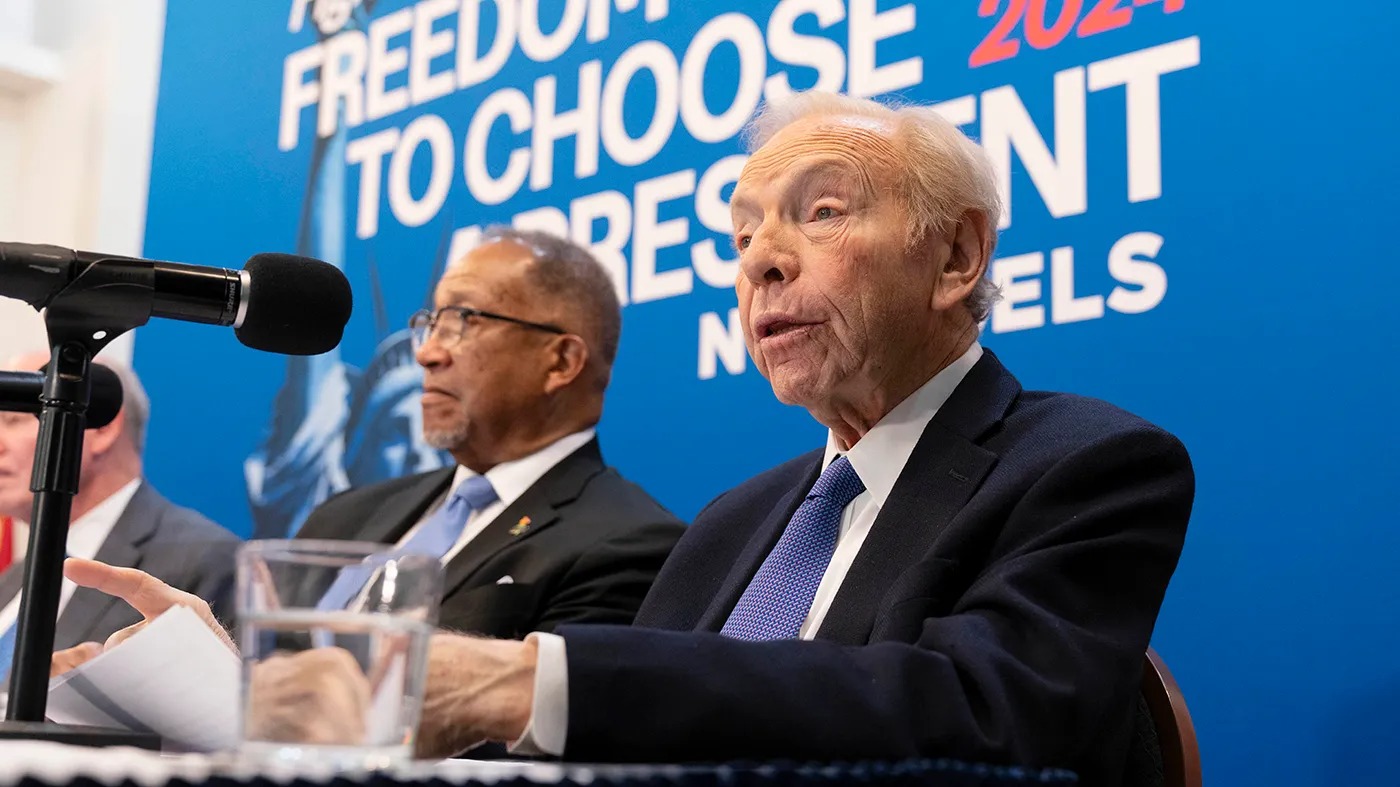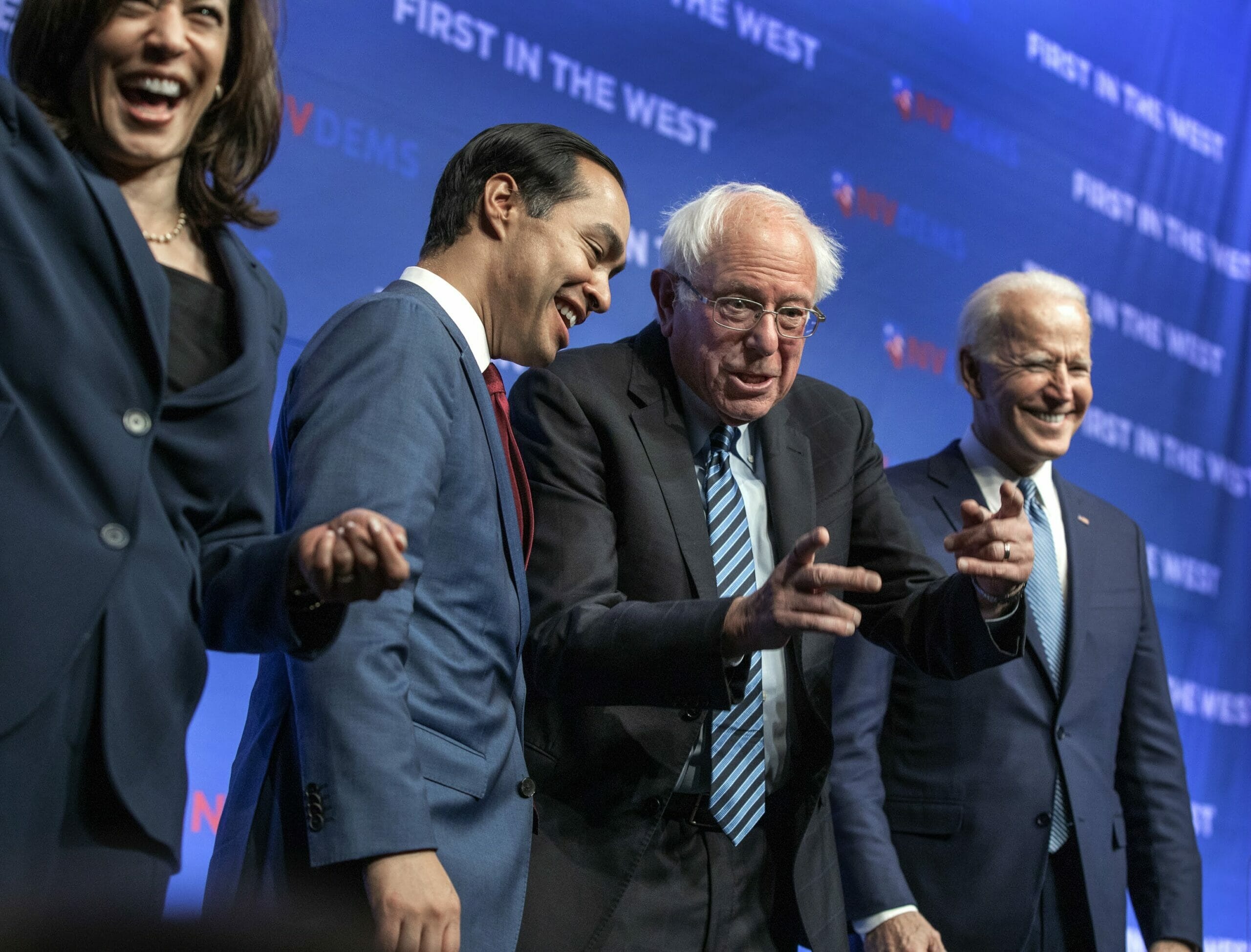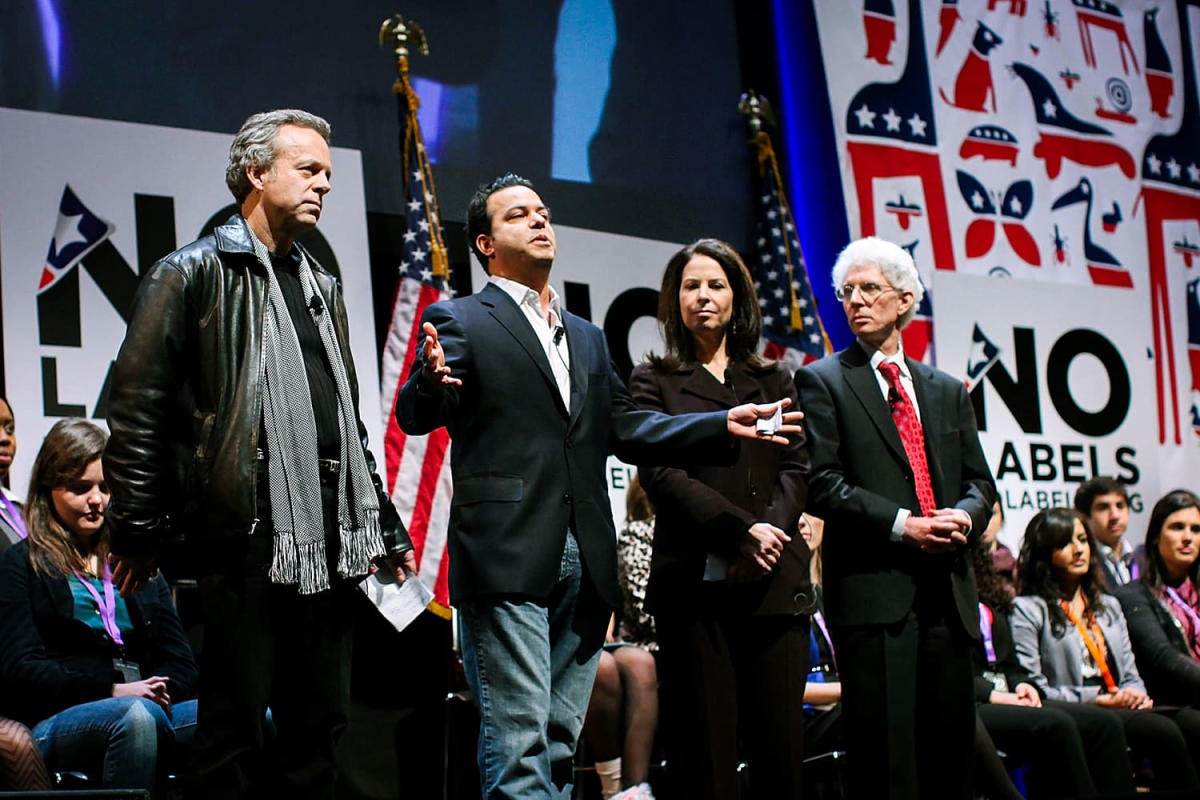No Labels, the centrist group aiming to field a third-party presidential ticket for the 2024 election, faces setbacks as prominent figures from both sides of the political spectrum continue to decline their offers.
Despite initial plans for a robust competition to select candidates and secure ballot access across all 50 states, the group has encountered resistance. It has only gained access in 17 states thus far.
Among the notable Republicans who have declined No Labels’ overtures are figures like former Rep. Liz Cheney, former Maryland Gov. Larry Hogan, Georgia Gov. Brian Kemp, former New Jersey Gov. Chris Christie, former Indiana Gov. Mitch Daniels, and New Hampshire Gov. Chris Sununu.

Freedom to choose a president (Credits: The Hill)
Despite efforts to court Sununu, known for his criticism of former President Donald Trump, he ultimately aligned with the GOP’s presumptive nominee, Trump, leaving No Labels without his support.
On the Democratic side, Sen. Joe Manchin, former Massachusetts Gov. Deval Patrick, and Democratic-turned-independent Sen. Kyrsten Sinema have also rejected No Labels’ offers. Even former New York Gov. Andrew Cuomo, who the group had approached, declined to pursue their candidacy.
Notable non-political figures like businessman Mark Cuban and retired Navy Adm. William McRaven did not express interest in No Labels’ proposition. The group even extended invitations to celebrities like Dwayne “The Rock” Johnson but to no avail.

Freedom to choose a president (Credits: The Nevada Independent)
The most recent rejection came from former Georgia Lt. Gov. Geoff Duncan, an anti-Trump Republican who was reportedly being considered for the No Labels ticket.
Duncan instead focused on “healing and improving the Republican Party,” indicating a preference for intra-party reform over third-party candidacy.
Despite its efforts, No Labels grapples with a lack of traction and support from potential candidates across the political spectrum.
The challenges highlight the entrenched polarization within American politics and the difficulty of establishing a viable centrist alternative in the current landscape.























